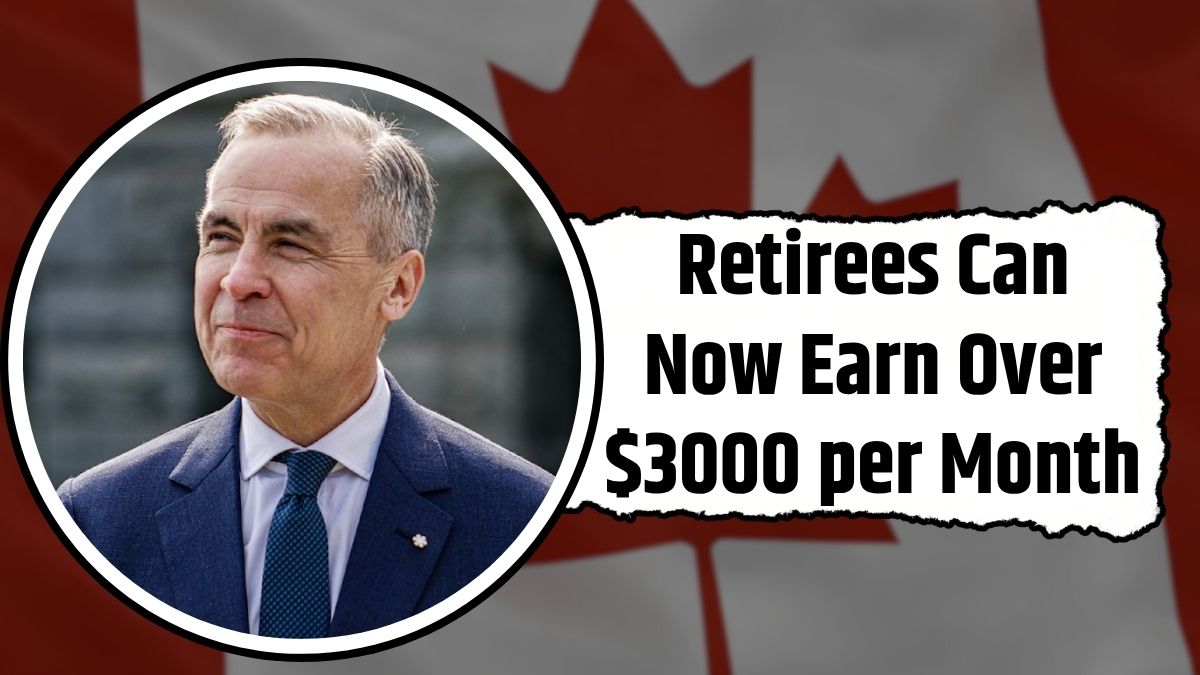With the cost of living steadily increasing across Canada, many seniors are facing serious challenges managing their monthly expenses. In response, the federal government has strengthened its core retirement programs to help seniors maintain financial stability. In 2025, eligible individuals can receive up to $3,178.07 per month by combining benefits from three key programs: the Canada Pension Plan (CPP), Old Age Security (OAS), and the Guaranteed Income Supplement (GIS).
These benefits are especially valuable for retirees without significant personal savings or private pensions. Knowing how these programs work together can help maximize monthly income and support a more comfortable and secure retirement.
Understanding Canada’s Public Retirement Income System
Canada’s retirement income system is built on three layers of financial support, each serving a different purpose. When used together, they offer a comprehensive safety net for seniors.
Canada Pension Plan (CPP): Based on Contributions
The Canada Pension Plan is a contributory retirement benefit, meaning the amount you receive depends on:
- How many years you contributed
- How much you contributed
- When you start claiming benefits
You can begin receiving CPP at age 60, but delaying until 70 can increase your monthly payment. In 2025, the maximum monthly CPP amount at age 65 is $1,364.60. Keep in mind, CPP is taxable income, which could affect your eligibility for other programs like GIS.
Old Age Security (OAS): Based on Residency
The Old Age Security benefit is available to Canadians aged 65 and older, based on how long they’ve lived in Canada after turning 18.
To qualify:
- You need at least 10 years of Canadian residency
- You must have lived in Canada for 40 years or more after age 18 to get the full amount
The maximum OAS payment as of July 2025 is $748.00 per month. Like CPP, OAS is also taxable and contributes to your total annual income.
Guaranteed Income Supplement (GIS): For Low-Income Seniors
The GIS provides non-taxable monthly support to low-income seniors who are already receiving OAS. It is an income-tested benefit, meaning:
- No contributions are needed
- The lower your income, the more GIS you receive
- Eligibility is based on your net income, excluding OAS
In 2025, eligible single seniors can receive up to $1,065.47 per month in GIS. This supplement is vital for retirees struggling to cover housing, food, or medical expenses.
Maximum Monthly Retirement Income for July 2025
If a senior qualifies for maximum benefits under all three programs, here’s what they could receive each month in July 2025:
| Program | Monthly Maximum (CAD) | Key Eligibility Criteria |
|---|---|---|
| CPP | $1,364.60 | Full contribution history, age 65 |
| OAS | $748.00 | Age 65+, 40+ years Canadian residency |
| GIS | $1,065.47 | Low-income, receiving OAS |
| Total | $3,178.07 | Full eligibility for all programs |
These figures represent maximum amounts. The actual amount you receive depends on your income, contributions, marital status, and other personal factors.
How to Increase Your Monthly Retirement Income
While not all retirees will qualify for the maximum $3,178.07, there are several strategies to boost your monthly income.
Delay CPP or OAS to Receive Higher Payments
If you can afford to delay benefits, waiting until age 70 can significantly increase your monthly CPP and OAS amounts.
Keep Taxable Income Low to Maximize GIS
Because GIS is income-tested, try to minimize your taxable income through careful planning. Income from part-time jobs or certain investments may reduce or eliminate your GIS eligibility.
File Your Taxes Every Year
The government automatically reassesses your eligibility for OAS and GIS annually—but only if you file your tax return. Skipping a year could cost you thousands in benefits.
Coordinate with Your Spouse
Couples may be able to split pension income or structure their finances in a way that keeps household income below GIS thresholds, helping both spouses maintain benefit eligibility.
Stay Updated with Policy Changes
Rules regarding retirement benefits can change each year, including payment amounts, thresholds, and application procedures. Keep an eye on announcements from Service Canada and the Canada Revenue Agency (CRA) to stay informed about:
- Annual rate adjustments
- Updated eligibility criteria
- Key deadlines for applications or renewals
Being proactive and informed can help you maximize your entitlement and avoid missed opportunities.
Why These Benefits Are Crucial in 2025
In a time marked by high inflation, rising housing and healthcare costs, and limited private savings, these federal benefits offer more than just financial assistance—they are essential for economic survival.
Receiving over $3,000 per month in government support can help seniors:
- Stay above the poverty line
- Remain financially independent
- Live with dignity during retirement
For many seniors, these programs are not just a supplement, but the foundation of their retirement income.
FAQs
Q1. What is the maximum amount a retiree can receive from CPP, OAS, and GIS in 2025?
As of July 2025, the combined maximum monthly benefit is $3,178.07, provided you fully qualify for all three programs.
Q2. Can I receive all three benefits at once?
Yes. If you meet each program’s eligibility requirements, you can receive CPP, OAS, and GIS simultaneously.
Q3. Is GIS automatically included with OAS?
No. While some people are automatically enrolled in OAS, you must apply separately for GIS, and it must be renewed annually based on your income.
Q4. Will part-time work in retirement affect my GIS eligibility?
Yes. Any additional income—from work or investments—may reduce your GIS payments or disqualify you, depending on your net income.
Q5. Are CPP and OAS taxable?
Yes. Both CPP and OAS are taxable, while GIS is non-taxable. However, taxable income affects GIS eligibility, so planning your income wisely is important.









